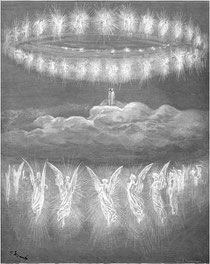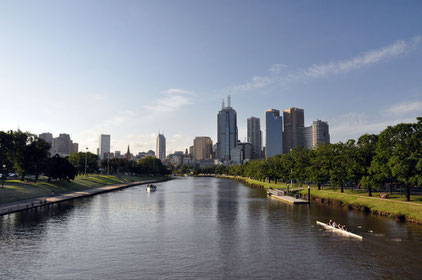Comiket in the Cold
I got invited to play Okarin again at the December edition of Comiket. I only made it out for one day this time, but I have now effectively categorized four kids of fun you can have with a day of cosplay:
(1) You can have fun taking other people's pictures.
(2) You can have fun getting your picture taken.
(3) You can have fun getting pictures of you with your favorite characters.
(4) You can have fun collecting all the characters from your show so everyone else can go nuts taking millions of pictures of you.
Number (4) makes the day the most exciting—particularly when you are part of a large set. My friend Emiko and I managed to flag down three other characters from the series Steins;Gate, with much photography ensuing.
I also discovered that cosplayers will often have business cards of themselves in their various costumes, meaning that many carry multiple variant cards. We met a guy who came up all the way from Nagoya with three costumes—one for each day of the convention. He was one of several people we re-encountered from the August edition of Comiket.
It was supposed to rain, but we were lucky that the weather held, and I was able to get some nice shots. We even knocked off a few really nice model shots in the last light of the day.
Highlights for me included Final Fantasy characters, a Gantz team, the cutests Tachikoma I have ever seen, and some guy who decided to turn up as Tora-san...
Did I mention that half the event is essentially otaku T&A? It was amusing to note the skin-colored tights and heat paks applied by all the girls who still turned up in skimpy outfits.
Turkey Dinner & The Sisyphean Wheel of Art
After two weeks of eating nothing but take-out prior to my move, followed by two weeks of eating nothing but take-out after my move, it was only a matter of time before I got sick. It didn't help that Shinjuku surrounds me with electronics, brand bags, karaoke and restaurants, but when I asked at the local convenience store where I might find a supermarket they looked at me funny and shrugged. Then they suggested a convenience store.
The other day I finally discovered that the nearest supermarket is a three-minute walk away. It's not even all that expensive. Lesson learned? Don't rely on Combini people.
Les Misérables

The guiding ethic of any film adaptation of a legendary source must be: “Change as little as possible.” Those in charge of Les Miz knew precisely what they were working with. A few songs are shortened, a handful of lines altered, and a few scenarios condensed or adapted to their original literary form, but the whole remains gloriously and satisfyingly intact.
The Work Song is set to the image of a hundred convicts battling a stormy sea to pull a listing ship into dry dock—and only here does the film’s live-recording ethic fall short, as the music and voices lack the power to match the imagery, seemingly washed out by the sea noise, where the live musical would normally captivate from the first note.
Neither of them theatrical belters, Jackman and Crowe’s performances feel subdued in the opening scene. But the film finds its gravitas the instant Colm Wilkinson appears as the Bishop of Digne, and from that instant, the next two and a half hours are nothing less than the repeated sliding of the viewer’s soul up and down a finely-honed blade.
The ability to take close-ups gives the film an intimacy that is unattainable on a Broadway stage, and power numbers are sometimes reduced to a chilling whisper. Anne Hathaway destroys herself to bring Fantine to life, and her incredible, personal pain washes in waves from the screen. The tooth removal, normally excised from the musical, is even back from the book—though modified in location. Confrontation is then viscerally set as a full-on close-quarters sword fight.
Film also allows a depth of scale that challenges the stage. The transition to At the End of the Day is a grim and powerful scramble through the slums of Paris, shaking the screen with the palpable rage of a nation. Look Down is another tour de force, while Do You Hear the People Sing emerges from a quiet, elegiac call to arms that organically overtakes General Lamarque’s funeral procession.
Samantha Barks’ Éponine lights up in her every interaction with Marius, and shots of her in the background of A Heart Full of Love are soul-rending. But she suffers just enough tiny cuts that A Little Fall of Rain is not quite as arresting as it should be, and the constant close-ups amputate the power of a scene that should captivate not only through its intimacy, but through the inactivity that washes across the entirety of a once-violent stage.
Russel Crowe’s soft-voiced Javert takes some getting used to, and while it works more often than one might expect, he sometimes seems to be singing with a sock in his mouth—most notably during One Day More, where he seems to have been mixed in at a different volume level from the rest of the cast. Yet the cinematography of Stars is simple yet stunning, and Javert’s Suicide suffers nothing in this interpretation.
M. Thénardier endures a few cuts (most notably the truncation of Dog Eats Dog), but Sacha Baron Cohen steals enough asides and chews enough scenery that his part hardly feels reduced.
The background has been filled in with elements from the novel, and those who have read Hugo’s epic will appreciate nods to Fauchelevent and the Petit-Picpus convent, Gavroche’s elephant-home, Marius’ grandfather, and the tavern behind the barricade. There is even a quick cut to Gavroche when Éponine is shot, winking at their normally undisclosed sibling relationship.
Even the finale remains perfectly and satisfyingly intact. The only challenge with a film that so precisely parallels its stage inspiration is resisting the necessity to deliver a standing ovation once the final note has been sung. If only they had found a way to incorporate a curtain call.
The Shattered Arc
The last month has been a mess. For a few weeks I wasn’t sleeping or eating, and I lost enough weight that my engineering ring has begun to slip off, which has never happened before—though this may also be due to my almost complete lack of exercise. At my lowest point, when both work and personal life were a mess and I wasn't sure if I'd have a place to live in three weeks' time, I actually called my parents for the third time in fifteen years... and they hung up on me twice thinking I was a telephone solicitor. I had to buy a phone card and try a third time just to make sure there was nothing wrong with my phone.
Below is a reproduction of (most of) the poetry I wrote over the period—20 pieces in a month, which is rather a lot for me. Many of these are reflections, as well as those epiphanies that demand a certain amount of agony to be achieved.
Evangelion 3.0
I went to buy tickets for Evangelion 3.0 on Saturday around 3:00. They were sold out until Sunday at 9:30. I finally posted my review on IMDB.com, reproduced below.
Four Big Events
Right, I will presently dedicate about 30 minutes of time (all I got!) to a brief summary of 3 key events in the last week, plus a quick comment on one from a month back.
Acting, Photography and Art
Just a brief status update before I collapse. Things I've been working on:
Comiket 2012
On the weekend I got invited to do my first round of cosplay at Comiket, one of the biggest anime/dojinshi conventions in Japan. A few friends had decided to go as a trio from an anime called Steins;Gate, and they were kind enough to invite me along as the main character—in no small part because they knew I would come along with my camera.
What we are
We show what we are in what we do and what we say, and in what we do not do and what we do not say. And yet we can see in the face, in the body, the emotion that comes with action, and with its absence. Not all of us are as strong as we would wish to be. Not all of us can be. We suffer when we cannot do what we should have done. We suffer when we cannot think of the right thing to do. Or when we think of it only too late. And we rejoice when we have, against all odds and probability, realized and executed the right deed at the right moment. There is revelation in satisfaction, and revelation in regret. Action. Word. Emotion concealed. Emotion revealed. These are what we are.
Why do I weep as I write this?
The Divine Comedy

The Divine Comedy is not at all what you would expect to find upon opening a 700-year-old extension of Biblical scripture.
The Comedy was written between 1308 and 1321, after Dante was exiled from Florence by decree of Pope Boniface VIII, who had the anti-papal White Guelphs, a political party of which Dante was a member, expelled from the city. The result? A biting, analytical and scathingly political document, with a prevailing conviction that the early fourteenth century was a time in need of immediate divine remediation.
While a third of the Comedy's content is of Biblical inspiration, the remaining two thirds form a political satire and fan-fiction archive that, considering the Medieval obsession with Greek and Roman literature, is little different at heart from any work of derivative fiction that might be produced today.
It must be noted that, by official interpretation, the Divine Comedy is a ‘comedy’ only in the classical sense, where all stories were defined as either ‘comedy’ or ‘tragedy’. It was written in the vernacular, and the protagonist was better off at the end than he was at the beginning, thus distinguishing it from the high language and sad ending required of a ‘tragedy’. Looking at the text in the modern sense of the word, however, one might argue that ‘comedy’ is the entirely apt term—if it is taken to mean ‘political satire’.
Saturday
Today
A good soul
Was collected.
It is
The closest
I have come
To grabbing
God
By the throat
And asking him
What the fuck
He
Was thinking.








